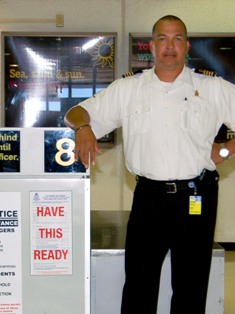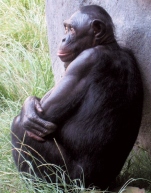Archive for June, 2010

Budget to reveal new tax
 (CNS): The government will be presenting its plans today (Tuesday 15 June) at the State Opening of Parliament on how it intends to get the Cayman Islands’ finances back on track. Although government has said it will not introduce any direct taxes, it may be hitting consumers at the gas pump and on CUC bills. Following the premier’s recent trip to the UK, where he gained approval for further public sector borrowing, McKeeva Bush has said he will not introduce any direct taxes. However, the Cayman public can expect to see a new fee introduced on diesel when the Throne Speech and budget presentation are delivered in the Legislative Assembly.
(CNS): The government will be presenting its plans today (Tuesday 15 June) at the State Opening of Parliament on how it intends to get the Cayman Islands’ finances back on track. Although government has said it will not introduce any direct taxes, it may be hitting consumers at the gas pump and on CUC bills. Following the premier’s recent trip to the UK, where he gained approval for further public sector borrowing, McKeeva Bush has said he will not introduce any direct taxes. However, the Cayman public can expect to see a new fee introduced on diesel when the Throne Speech and budget presentation are delivered in the Legislative Assembly.

Crown drops clamp charges
 (CNS): A man who was facing a Grand Court trial for theft after his van was clamped in the Grand Harbour shopping area has been exonerated after charges were discontinued on Friday. Michael Lemay had been accused by the complainant – the clamping company — of stealing its two clamps after he deflated the tires on his vehicle to remove them and drove away. The prosecution told the court that there was no case against Lemay for theft and if anything charges could have been brought against the wrong party, as it was the clampers, in this case, that were a fault for immobilizing the vehicle unlawfully. (Photo by Dennie Warren Jr)
(CNS): A man who was facing a Grand Court trial for theft after his van was clamped in the Grand Harbour shopping area has been exonerated after charges were discontinued on Friday. Michael Lemay had been accused by the complainant – the clamping company — of stealing its two clamps after he deflated the tires on his vehicle to remove them and drove away. The prosecution told the court that there was no case against Lemay for theft and if anything charges could have been brought against the wrong party, as it was the clampers, in this case, that were a fault for immobilizing the vehicle unlawfully. (Photo by Dennie Warren Jr)

‘Vuvuzela’ resellers eye World Cup gold
 (AFP): World Cup fans may be split on South Africa’s vuvuzela, either merry fanfare or deafening din, but two German entrepreneurs who bought the resale rights for Europe hope the horn will spell gold. Cherished by South African football fans, the one-metre long plastic trumpet produces a drone like a giant swarm of bees when thousands are played at once, sparking a growing backlash from broadcasters, fans and even some players. But Frank Urbas and Gerd Kehrberg — who acquired the resale rights for the European Union from the vuvuzela’s South African maker Masincedane Sport in March last year, are betting business will be brisk despite the controversy.
(AFP): World Cup fans may be split on South Africa’s vuvuzela, either merry fanfare or deafening din, but two German entrepreneurs who bought the resale rights for Europe hope the horn will spell gold. Cherished by South African football fans, the one-metre long plastic trumpet produces a drone like a giant swarm of bees when thousands are played at once, sparking a growing backlash from broadcasters, fans and even some players. But Frank Urbas and Gerd Kehrberg — who acquired the resale rights for the European Union from the vuvuzela’s South African maker Masincedane Sport in March last year, are betting business will be brisk despite the controversy.

Scuba diver reunited with camera lost six months ago
 (The Telegraph): When Dick de Bruin lost his camera during a scuba diving expedition off the Caribbean island of Aruba, he held out little hope of seeing it again. The Royal Dutch Navy sergeant could only watch helplessly as it floated away while he and his dive team explored a wreck. Yet seven months, 1,100 miles later and one hungry turtle attack later, the camera is back with Mr de Bruin after an extraordinary ocean odyssey, and all thanks to the tireless investigative skills of a Florida coastguard. Paul Shultz spotted the bright red Nikon camera pounding against the rocks of a marina in Key West, Miami, on May 16. It was covered in six months’ worth of crusty sea growth and at first Mr Shultz mistook it for a rotting tomato.
(The Telegraph): When Dick de Bruin lost his camera during a scuba diving expedition off the Caribbean island of Aruba, he held out little hope of seeing it again. The Royal Dutch Navy sergeant could only watch helplessly as it floated away while he and his dive team explored a wreck. Yet seven months, 1,100 miles later and one hungry turtle attack later, the camera is back with Mr de Bruin after an extraordinary ocean odyssey, and all thanks to the tireless investigative skills of a Florida coastguard. Paul Shultz spotted the bright red Nikon camera pounding against the rocks of a marina in Key West, Miami, on May 16. It was covered in six months’ worth of crusty sea growth and at first Mr Shultz mistook it for a rotting tomato.

White rice raises risk of type 2 diabetes
 (Scientific American): White rice joins the growing list of refined carbohydrates with links to increased risks for diabetes, according to a new large study that quantified odds for consumers of white rice—as well as brown rice. Turning brown rice white entails removing a rice grain’s bran and germ, which uncovers the white endosperm. The process also raises the grain’s glycemic index (a measure of a carbohydrate’s ability to raise blood sugar) and strips away vitamins, fiber, magnesium and other components that might help keep diabetes at bay. The new findings have key health implications because more than 70 percent of rice eaten in the US is white rice.
(Scientific American): White rice joins the growing list of refined carbohydrates with links to increased risks for diabetes, according to a new large study that quantified odds for consumers of white rice—as well as brown rice. Turning brown rice white entails removing a rice grain’s bran and germ, which uncovers the white endosperm. The process also raises the grain’s glycemic index (a measure of a carbohydrate’s ability to raise blood sugar) and strips away vitamins, fiber, magnesium and other components that might help keep diabetes at bay. The new findings have key health implications because more than 70 percent of rice eaten in the US is white rice.

May not so merry for hedge funds
 (Reuters): The European hedge fund industry’s top brass meet in glitzy Monaco this week for their annual summit, after a turbulent May that has taken some of the shine off an industry recovering from its worst ever crisis. Executives such as Man Group, CEO Peter Clarke, whose firm last month unveiled a $1.6 billion takeover of GLG Partners and Leda Braga, head of Bluecrest’s ‘black box’ funds, will debate how the industry continues to win back clients in the face of choppy markets and looming regulation. The 2010 GAIM International conference on June 14 to 17 comes after almost a year of steady net client inflows — helped by returns of 20 percent in 2009.
(Reuters): The European hedge fund industry’s top brass meet in glitzy Monaco this week for their annual summit, after a turbulent May that has taken some of the shine off an industry recovering from its worst ever crisis. Executives such as Man Group, CEO Peter Clarke, whose firm last month unveiled a $1.6 billion takeover of GLG Partners and Leda Braga, head of Bluecrest’s ‘black box’ funds, will debate how the industry continues to win back clients in the face of choppy markets and looming regulation. The 2010 GAIM International conference on June 14 to 17 comes after almost a year of steady net client inflows — helped by returns of 20 percent in 2009.

Customs colour system nets results
 (CNS): After more than a year in operation at the airport the colour-coded clearance system has improved collections and the netting of smuggled goods the customs department has revealed. The channelling of arriving passengers through green, yellow and red areas, already common in many airports around the world was only introduced here last April. Assistant Collector of Customs Kevin Walton who introduced the system to Cayman said the airport had increased revenue by 6.7% April to December 09 as well as contraband. Although lower air arrivals in 2010 saw collections decrease the system itself has improved operations and the visitor experience.
(CNS): After more than a year in operation at the airport the colour-coded clearance system has improved collections and the netting of smuggled goods the customs department has revealed. The channelling of arriving passengers through green, yellow and red areas, already common in many airports around the world was only introduced here last April. Assistant Collector of Customs Kevin Walton who introduced the system to Cayman said the airport had increased revenue by 6.7% April to December 09 as well as contraband. Although lower air arrivals in 2010 saw collections decrease the system itself has improved operations and the visitor experience.

Cayman Islands on Brazil’s financial blacklist
(CNS): Cayman remains in the first list of 65 jurisdictions compiled by Brazil’s ministry of finance that do not tax income, or tax it at below 20%, or whose internal legislation does not allow access to information about the ownership or composition of legal corporations. This group includes the Channel Islands, Switzerland and Liechtenstein. The ministry says that Brazil will be able to use special instruments to deal with tax planning structures, and that transactions between Brazilian entities and entities located on such jurisdictions are subject to additional scrutiny and/or unfavorable fiscal conditions.
The update from the Brazilian government also includes a second list of eight "privileged fiscal regimes” within high-tax jurisdictions, which do not necessarily have low tax rates but their legislation contains fiscal privileges for certain types of legal persons.This second list includes Luxembourg, Uruguay, Denmark, with respect to its holding companies, Netherlands, Iceland, Hungary, United States, Spain and Malta.
The first list of 65 countries is:
I – Andorra;
II – Anguilla;
III – Antígua and Barbuda;
IV – Netherland Antilles;
V – Aruba;
VI – Ascension Islands;
VII – Commonwealth of the Bahamas;
VIII – Bahrein;
IX – Barbados;
X – Belize;
XI – Bermuda;
XII – Brunei;
XIII – Campione D’Italia;
XIV – Channel Islands (Alderney, Guernsey, Jersey e Sark);
XV – Cayman Islands;
XVI – Chipre;
XVII – Singapore;
XVIII – Cook Islands;
XIX –Costa Rica;
XX – Djibouti;
XXI – Dominica;
XXII – United Arab Emirates;
XXIII – Gibraltar;
XXIV – Granada;
XXV – Hong Kong;
XXVI – Kiribati;
XXVII – Lebuan;
XXVIII – Lebanon;
XXIX – Liberia;
XXX – Liechtenstein;
XXXI – Macau;
XXXII – Madeira Island;
XXXIII – Maldivas;
XXXIV – Island of Man;
XXXV – Marshall Islands;
XXXVI – Maurítius Islands;
XXXVII – Mônaco;
XXXVIII – Montserrat;
XXXIX – Nauru;
XL – Niue;
XLI – Norfolk Island;
XLII – Panamá;
XLIII – Pitcairn Island;
XLIV – French Polinesia ;
XLV – Queshm Island;
XLVI – American Samoa;
XLVII – West Samoa;
XLVIII – San Marino;
XLIX – Island of Santa Helena;
L – Saint Lúcia;
LI – Federation of Saint Christopher and Nevis;
LII – Island of São Pedro e Miguelão;
LIII – San Vicente and Granadines;
LIV – Seychelles;
LV – Solomon Islands;
LVI – St. Kitts and Nevis;
LVII – Suazyland;
LVIII – Switzerland;
LIX – Sultanate of Oman;
LX – Tonga;
LXI – Tristão da Cunha;
LXII – Turks and Caicos Islands;
LXIII – Vanuatu;
LXIV – American Virgin Islands;
LXV – British Virgin Islands
One Laptop per Child updates design for older pupils
(BBC): The so-called $100 laptop has undergone a facelift in order to be used by secondary school children. The machines, designed by One Laptop per Child (OLPC), are based on the original XO laptop, which was built for primary school children. The new computers feature a larger keyboard and upgraded software. Uruguay, which has already distributed nearly 400,000 XO laptops to primary schools, has ordered 90,000 of the new laptops, known as the XO-HS. It has also ordered 10,000 machines designed by rival Intel, which makes the Classmate PC, also developed for children.

Student raising money for peaceful primates
 (CNS): Montessori By The Sea student Jared Harrison, 12, has launched a campaign to raise money and awareness on behalf of the bonobos of Africa. “These apes are amazing, beautiful creatures,” said Jared. “I’m trying to do everything I can to get people in the Cayman Islands to learn about them and make donations to try and save them from extinction.” Bonobos are a species distinct from the common chimpanzee that most people are aware of. Unlike chimps, Bonobos walk upright and show remarkably high levels of cooperation and peacemaking in the wild. Scientists estimate there currently are only some 10,000 left alive in central Africa. (Photo by Guy P. Harrison)
(CNS): Montessori By The Sea student Jared Harrison, 12, has launched a campaign to raise money and awareness on behalf of the bonobos of Africa. “These apes are amazing, beautiful creatures,” said Jared. “I’m trying to do everything I can to get people in the Cayman Islands to learn about them and make donations to try and save them from extinction.” Bonobos are a species distinct from the common chimpanzee that most people are aware of. Unlike chimps, Bonobos walk upright and show remarkably high levels of cooperation and peacemaking in the wild. Scientists estimate there currently are only some 10,000 left alive in central Africa. (Photo by Guy P. Harrison)
Wild populations have been ravaged by war, habitat loss and poaching. Without increased efforts, conservationists warn, the bonobos could be gone forever within a few decades.
Last week Jared wrote a research paper about the bonobos and delivered a passionate presentation to his class. “My dad has always been very interested in bonobos and he made me aware of how special they are,” Jared explained. “I was touched by how peaceful and kind they are. Other primates, including us, have wars, kill each other, and have a hard time sharing. Bonobos are so different. When they get upset about something they just hug it out. We can actually learn from them. They cooperate and take care of each other so well. They’re extraordinary.”
Jared hopes to spread the word and stir interest in these unique primates that most people have never heard of. Once people are aware of them, he believes, they are likely to want to help prevent their demise from habitat loss and poaching.
“I can’t let this [extinction] happen to them. I feel like Ihave to try and help them. I’m going to give all the money I have saved and my friends at school are going to give money too. I hope adults in Cayman will visit the Web site, www.bonobos.org, and donate money. You can even adopt a bonobo on the site. You don’t get to keep it but you help keep it safe in the wild. I’m begging Caymanians to please help save these majestic creatures.”
Jared encourages people who are interested in bonobos to email him at jaredconservation@gmail.com so he can send them more information. He also says he hopes to connect with others and form a kids’ conservation club.